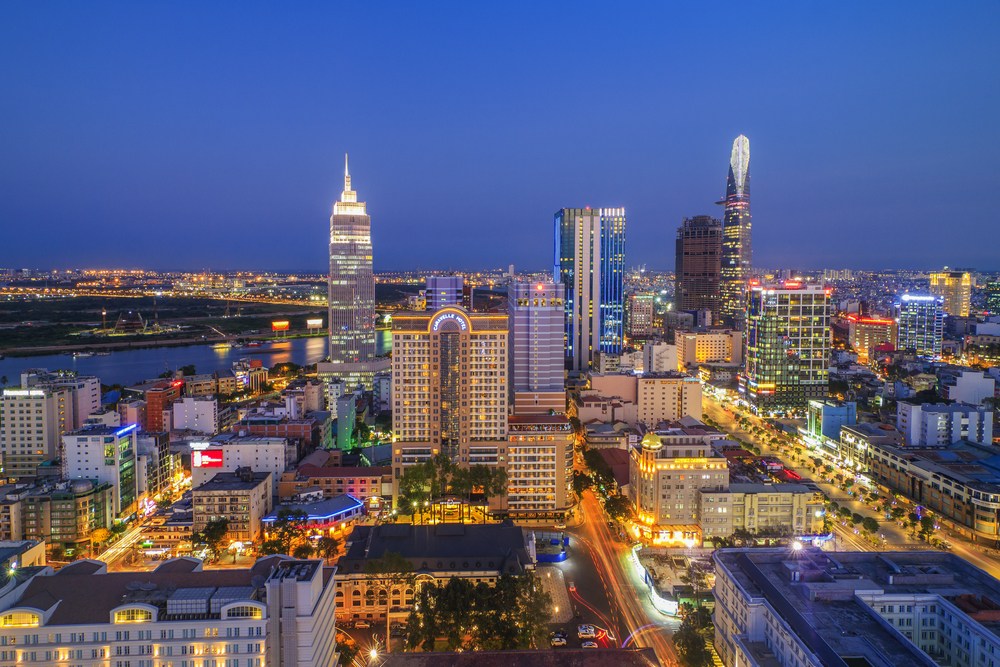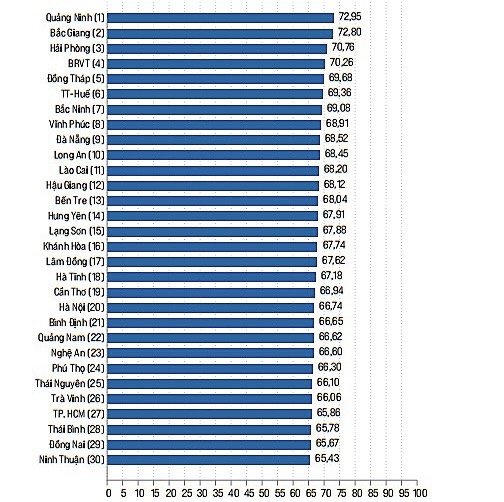The Vietnam real estate market has been seeing an upward movement for the past years thanks to domestic reforms and the ever-increasing economic growth. How will it fare this 2019?
Impressive Economic Growth Rate in 2018: A Backtrack
It is no doubt that Vietnam’s economy is performing well. In 2018, Vietnam GDP grew by 7.08%, the highest in the past 11 years. In addition to that, the total FDI inflows into the real estate market last year sharply rose to USD 5.6 billion.
This amount of economic growth has rapidly created more jobs leading to income growth and the reduction of poverty. The year 2018 marked the largest drop in the poverty rate in the past decade, accounting to 13%, says World Bank. In the same report, the World Bank reported that 70% of Vietnam’s population is classified as economically secure, and 13% are now part of the global middle-class.
With the rise of the individual wealth of the Vietnamese people, they are more capable of investing in a property, thus the increase of demand in properties as well as property prices.
It is no doubt that Vietnam’s economy is performing well. In 2018, Vietnam GDP grew by 7.08%, the highest in the past 11 years. In addition to that, the total FDI inflows into the real estate market last year sharply rose to USD 5.6 billion.
This amount of economic growth has rapidly created more jobs leading to income growth and the reduction of poverty. The year 2018 marked the largest drop in the poverty rate in the past decade, accounting to 13%, says World Bank. In the same report, the World Bank reported that 70% of Vietnam’s population is classified as economically secure, and 13% are now part of the global middle-class.
With the rise of the individual wealth of the Vietnamese people, they are more capable of investing in a property, thus the increase of demand in properties as well as property prices.
Vietnam Real Estate Market to Attract More Foreign Investors
What makes Vietnam a suitable place for property investment is the relatively lower property prices and its property buyer-friendly policies.
Most foreign buyers of Vietnam property come from Hong Kong, Mainland China, Taiwan, and Singapore. In the first quarter of 2018, Chinese buyers for demand Vietnam properties spiked at 300% higher as compared to 2017, said Carrie Law, chief executive of Juwai.com, an online Chinese real estate agency.
Compared to these countries, Vietnam property prices are significantly priced better than those countries. For instance, a luxury apartment in a prime location in Ho Chi Minh City costs about USD 5,000 per square metres. In contrast, the same luxury apartment can cost four times higher in Singapore and Hong Kong.
What sparks foreign investors interest is the high return on investment in property. Nguyen Khanh Duy, director of residential sales at Savills HCMC said that the return in Thao Dien ward and Thu Thiem Peninsula is 5-6.5%.
Aside from that, investing in a Vietnam property is relatively easy. A foreigner wanting to buy properties only needs to have a tourist visa to do so. Virtually, there is no limit on the number of properties that foreigners can buy. The only limit there includes:
- Foreigners cannot own more than 30% of the units in a condominium.
- Foreigners cannot own more than 10% in landed projects.
Furthermore, Vietnam offers a leasehold of 50 years which is renewable. For more information about Vietnam policies on buying a property, you can check the following:
- Housing Law and Law on Real Estate Business (Introduced in 2015)
- Law on Sell and Transfer of Real Properties (Introduced in 2015)
Coastal Cities on the Rise
Vietnam, like the Philippines and Thailand, is home to beautiful beaches as well. With a shoreline spanning 3260 kilometres, Vietnam has several tourist destinations worthy of praise. In this property market, holiday houses, as well as condominiums, thrive.
With major infrastructures such as highways, rails, and airports, people can easily access these coastal areas. Expect a rapid increase in tourists and potential second home seekers. Coastal cities such as Ho Tram, Quang Nam, Phu Quoc, Danang, and the emerging Phan Thiet, presents a high potential in Vietnam’s real estate market.
Demand for Affordable Housing to be Met with Higher Land Prices
As quoted by Vietnam News, CBRE Vietnam said that the affordable apartment segment will be on high demand for the coming years. Rising prices in the land, construction, interest rates, labour costs, and in marketing and profit enterprises made way for the increase in demand for the low-end market segment.
Experts say that properties priced around VND 2 billion have a very high demand, but with very scarce supply. During the initial sale of these projects, the take-up rate always reaches 80 to 100%. Areas such as Binh Duong Province, Ho Chi Minh City’s Thu Duc and Binh Chanh districts, and District 9 became a haven for investors that are attracted by affordable prices despite the subsided return.
Despite the demand for affordable homes, property developers decry the ever-increasing land prices. The high demand for land inexplicably creates high land prices, thus the dilemma.
Lê Hoàng Châu, chairman of the HCM City Real Estate Association, said that “In order to develop affordable housing for the next three years, we have to target the land of the suburban districts and nearby provinces.” He added that the city needs to further develop public transportation effectively to help people living in the suburban districts get to the city easily.
On the other hand, the high-end property market is met with moderate supply-to-demand rates. Vietnam Chamber of Commerce and Industry said that Hanoi and Northern region will continue to develop due to plenty room for growth. As for the South, the luxury apartment trend will continue to emerge in 2019, but the supply is limited.
Ho Chi Minh Property Market to Remain Strong
Accounting to 41.8% of total searches in 2018, Ho Chi Minh City remains the popular place for real estate investments, according to statistics from batdongsan.com.vn.
In Ho Chi Minh City, the price range from VND20-35 million per square metre and the apartment area from 60-70 square metres attracted the most interest. As foreign buyers account for 50% of all successful residential deals, fforeigninvestors are entering the market with the commitment of keeping their money in Vietnam, says Vikram Kohli, CBRE’s regional managing director of Southeast Asia.
This rise in foreign buyers could explain the 15% rise in prime residential prices in Ho Chi Minh City for the past two years, he added.
What’s in Store for the Vietnam Property Market this 2019?
The World Bank estimates that Vietnam’s real GDP will be moderating to 6.6 % and 6.5 due to the “envisaged cyclical moderation of global demand.”
However, accompanied by Vietnam’s relaxed regulations, better-priced properties, and the emerging middle class accounting for 13% of the population, Vietnam’s real estate market shows a bright future.
The country also faces a lack of housing units, creating a bigger demand for both low-end and high-end residential units.
Further marking Vietnam’s strength are government-funded infrastructures, FDI inflows, and incoming international developers which will fuel Vietnam’s economy.
(Yazhou Property)


